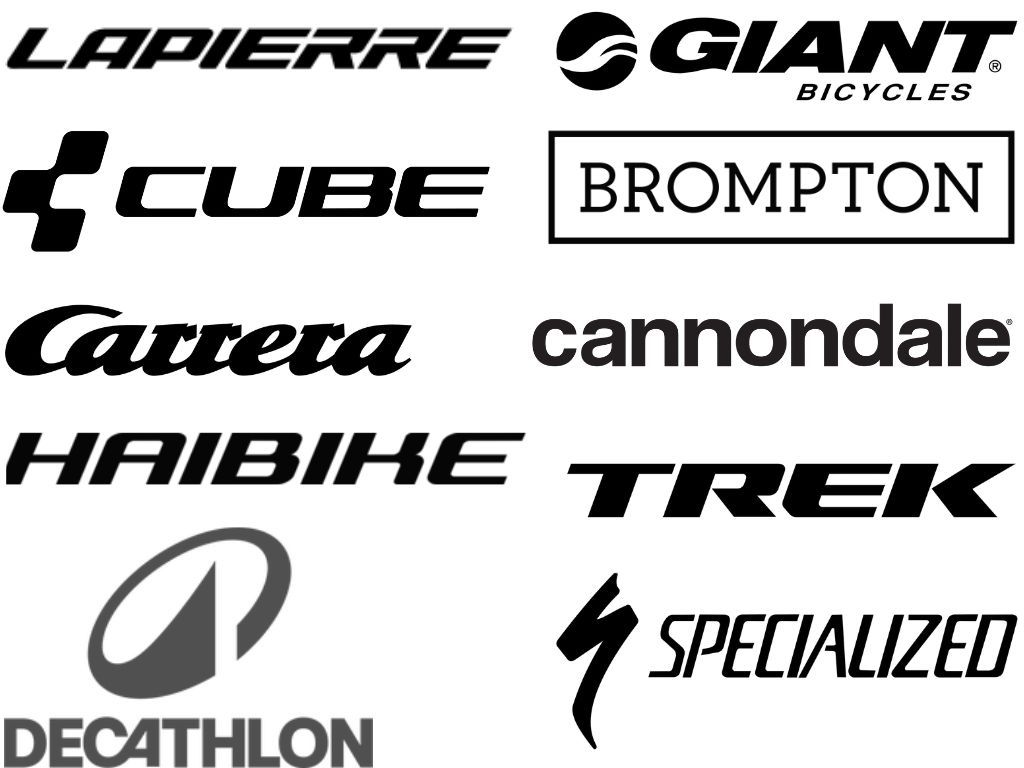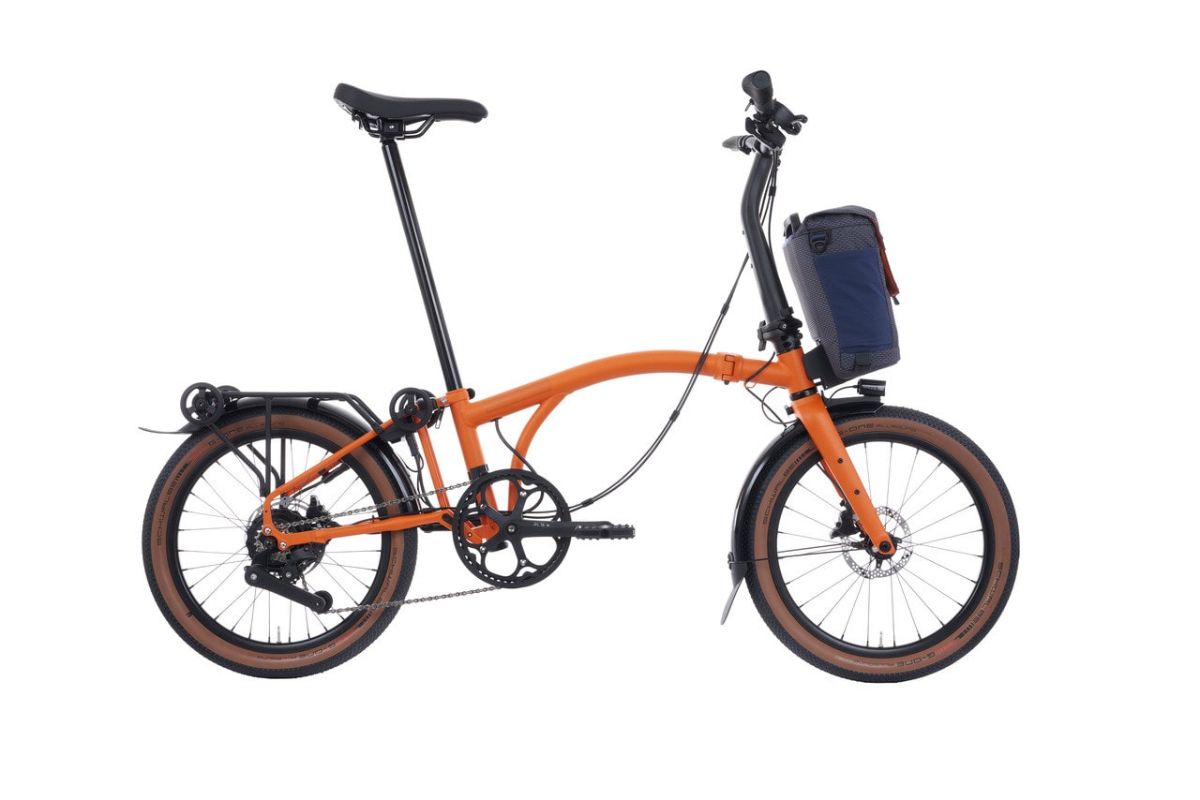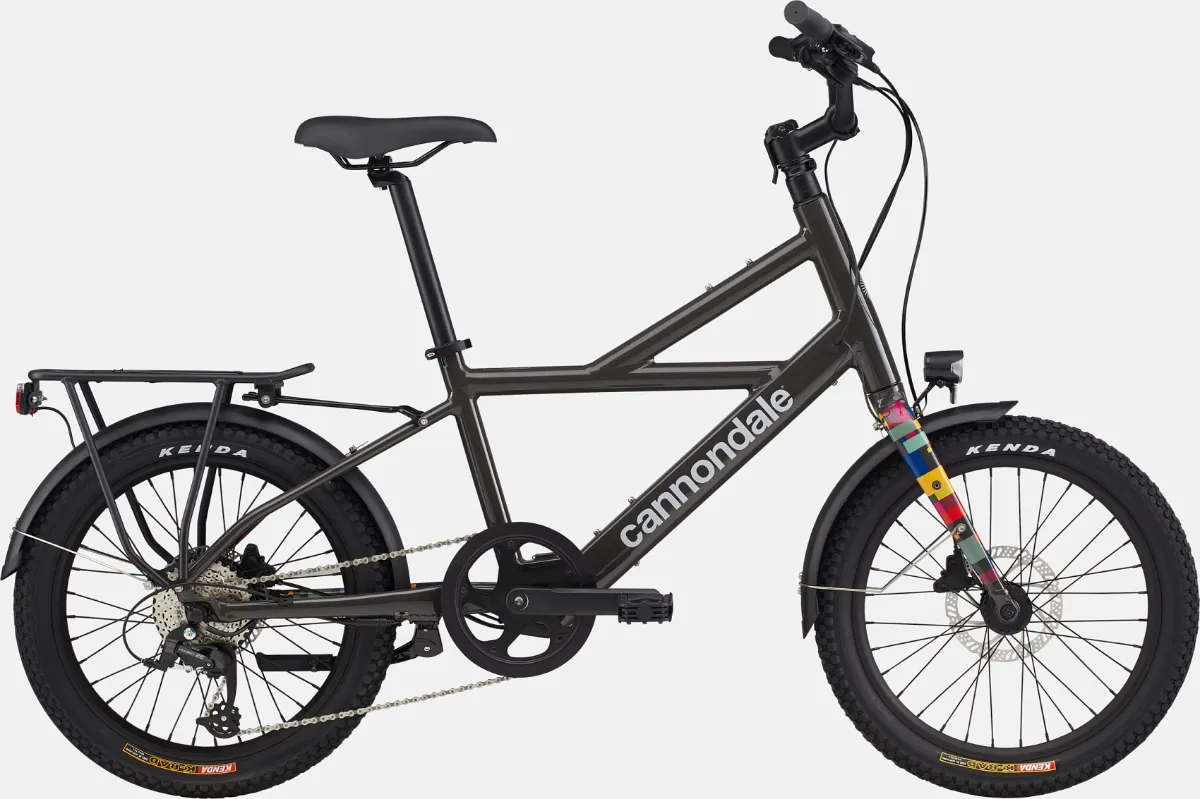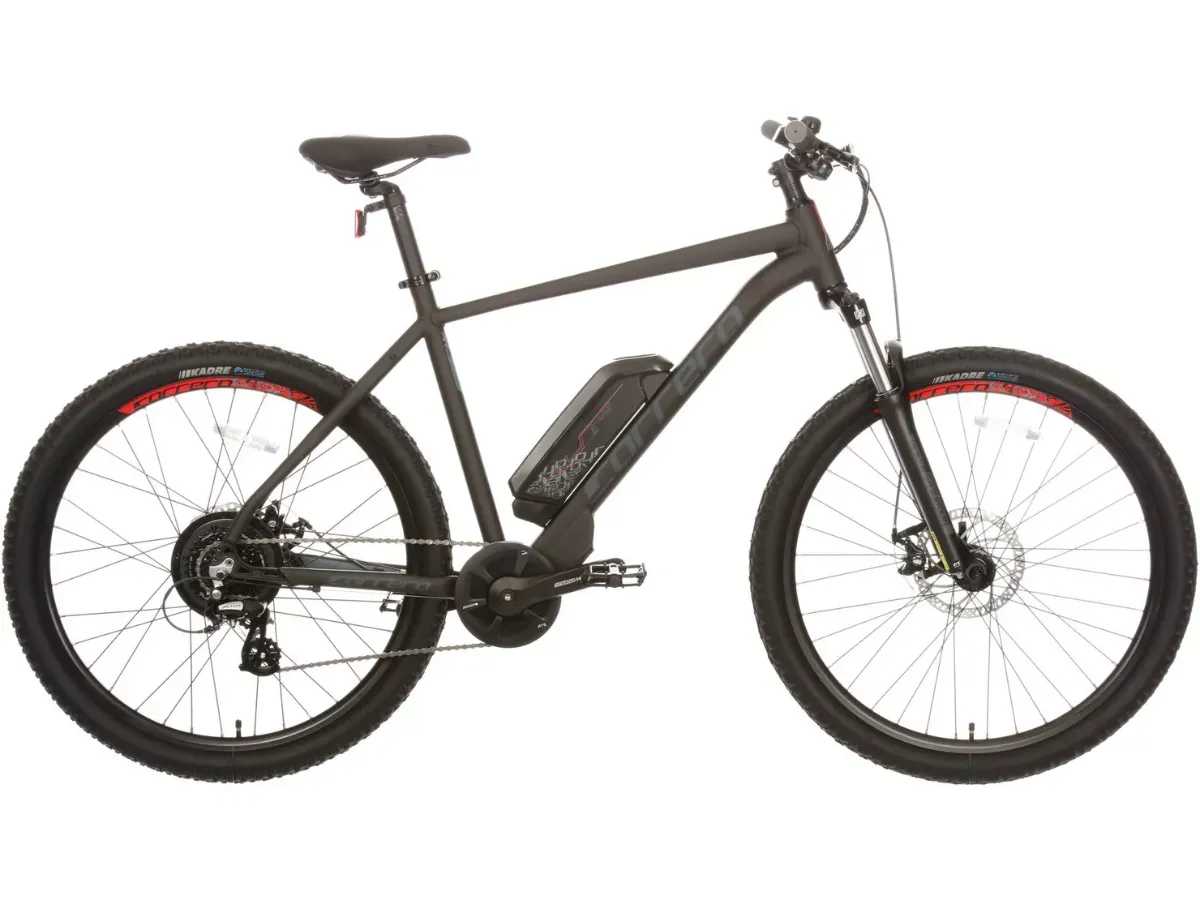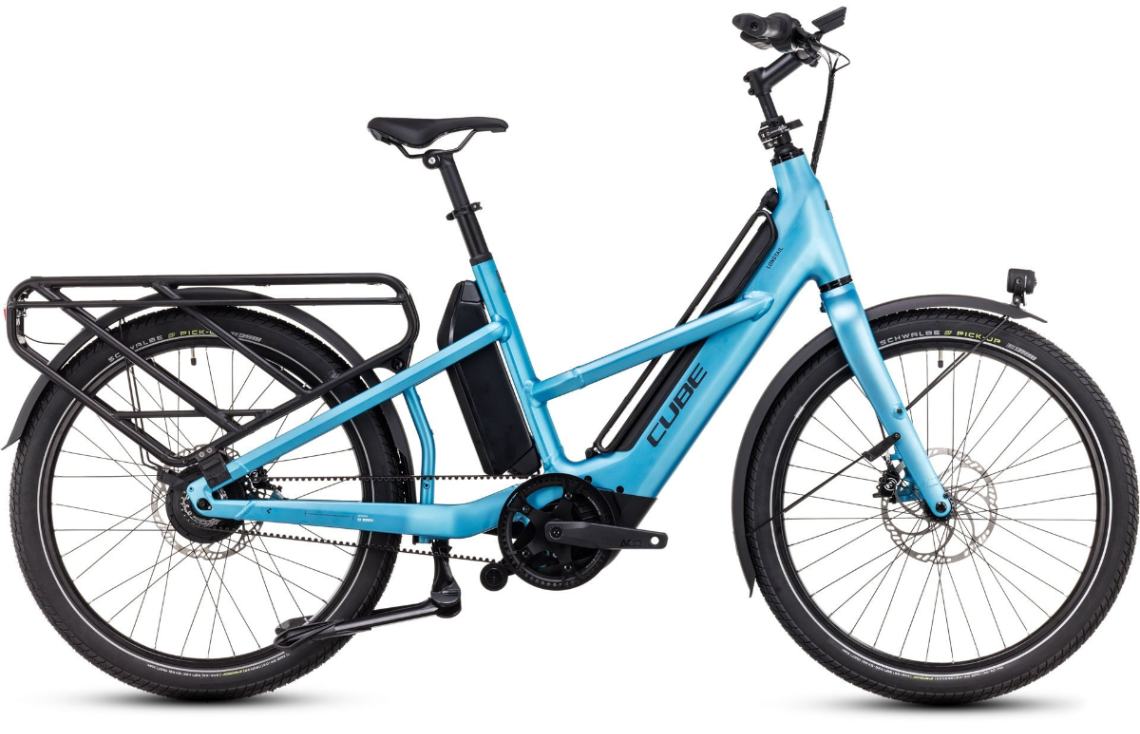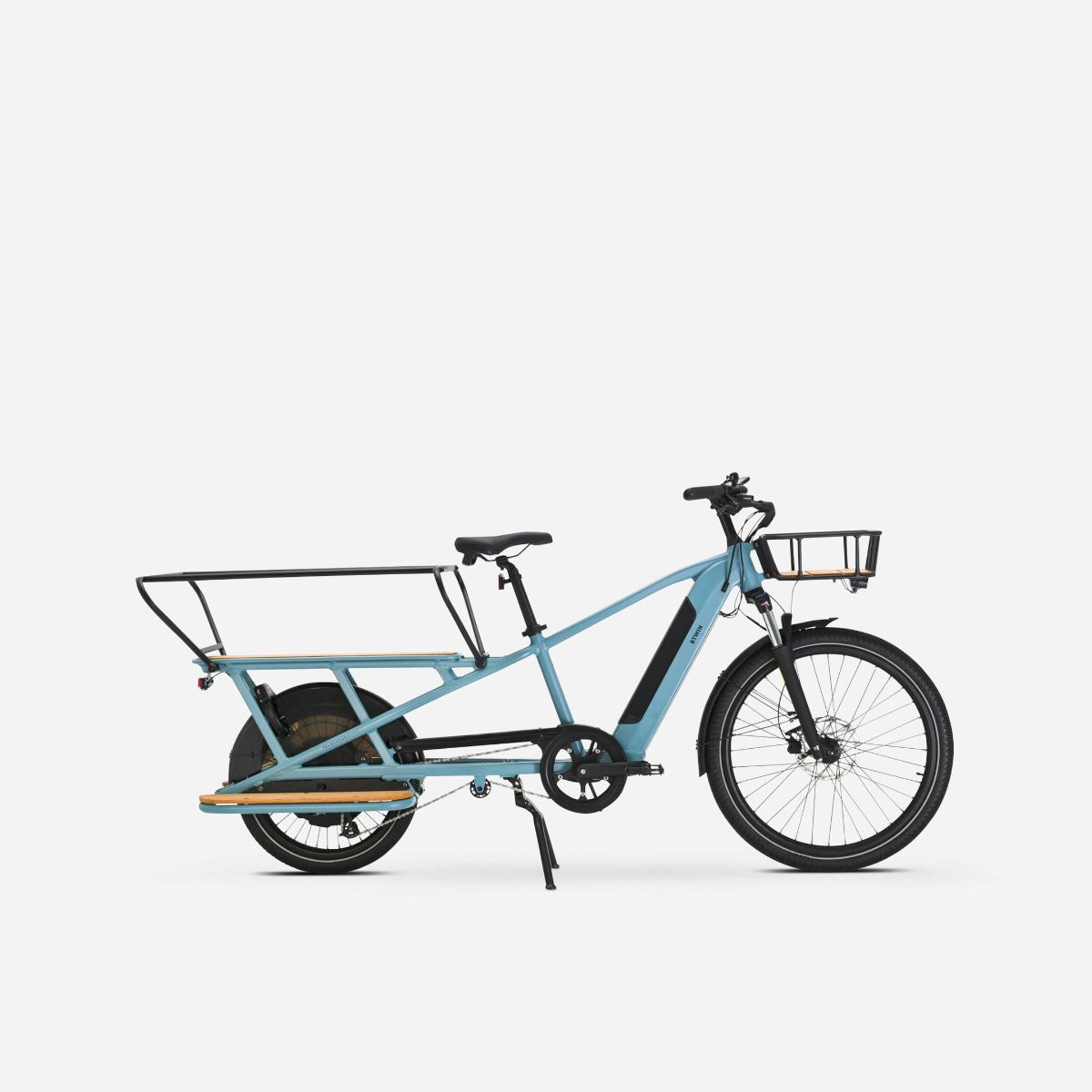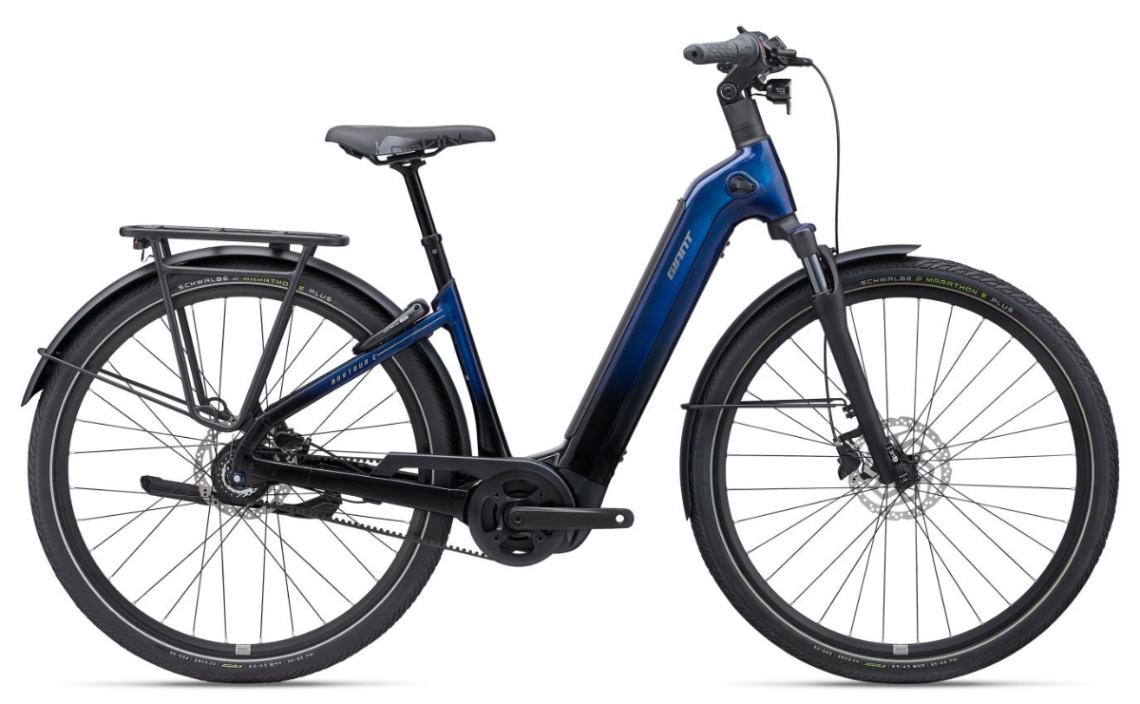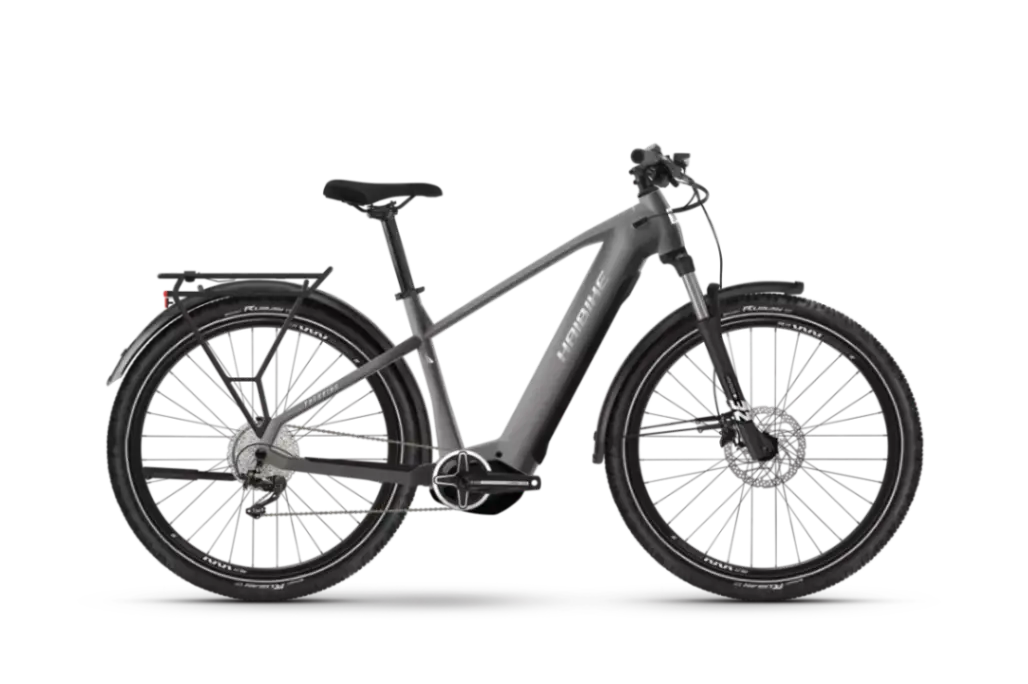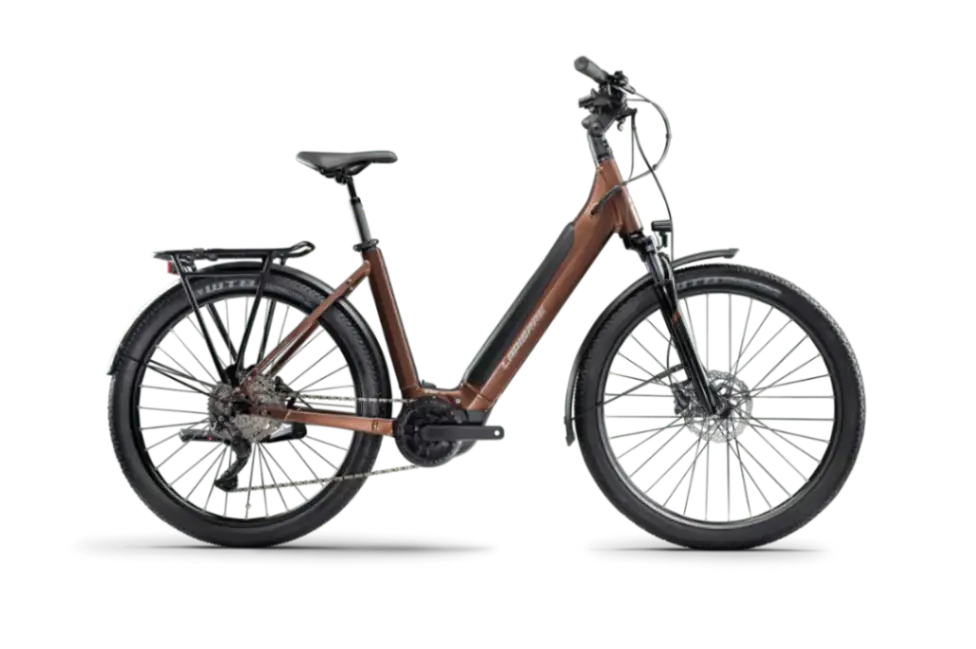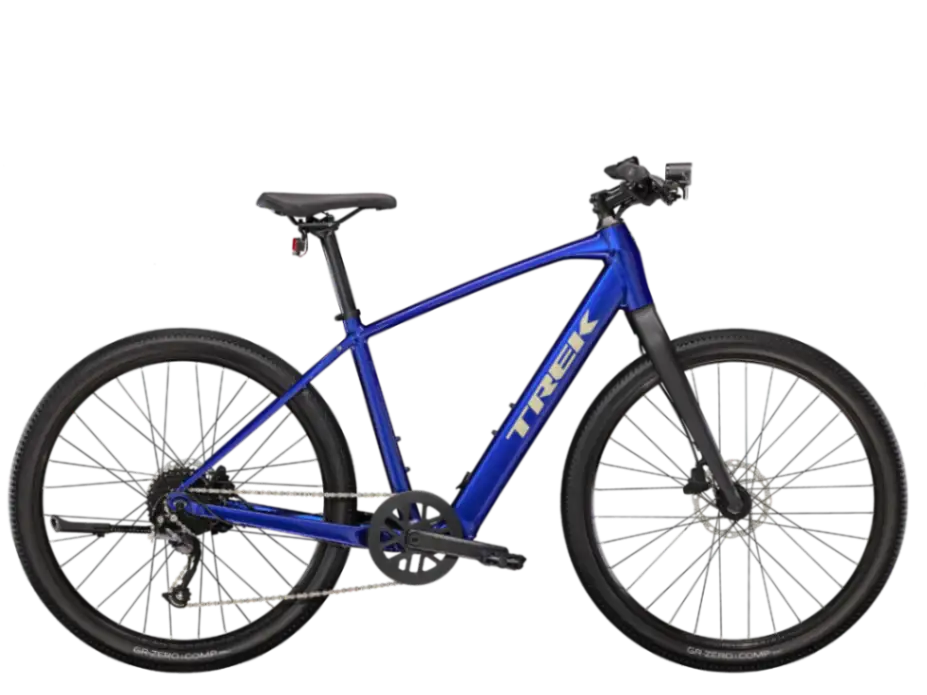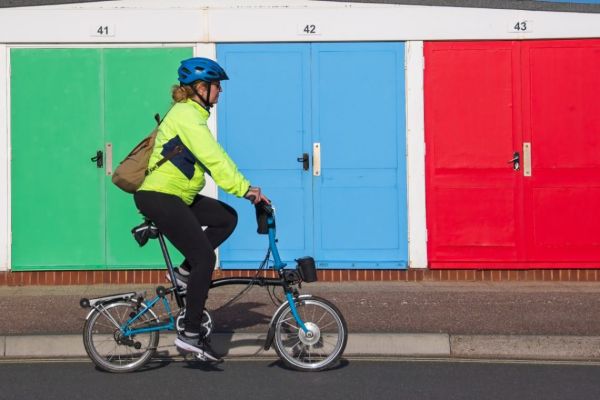The definitive guide to e-bike brands
The electric bike market is a confusing place. There are lots of different types of e-bike and there are many manufacturers offering their wares. While most brands are bicycle manufacturers who have diversified into e-bikes, there are also some who only make electric bikes. Here's a run-down of who's who.
Key takeaways
-
There are dozens of different bike manufacturers and a fair bit of churn, with some shutting up shop and others launching fairly frequently.
-
Four global brands (Giant, Specialized, Trek and Cannondale) have a considerable share of the overall market but there are a lot of regional variations.
-
Big brands are a safe bet but if you're looking for something niche like a folder, e-trike or cargo bike, there are smaller brands who focus on particular areas.
Table of contents
Brompton
Engineer and self-taught bike builder Andrew Ritchie invented his triple-folding Brompton bike in 1975. After ten years hand-making his bikes to order, he secured investment to set up a factory. Brompton bikes are still hand-made in the UK and have become a design icon and cult classic. Brompton's functional ethos fits in well with electric bikes and it now offers pedal-assist versions of its full range, adding motors without compromising the classic look (or compact fold) of the design.
Cannondale
One of the "big three" US bicycle manufacturers, Cannondale started in 1971 as a general engineering firm before founder Joe Montgomery had an idea for a bike trailer that included cloth bags, which somewhat accidentally led to Cannondale becoming the world's largest manufacturer of bike luggage. From there it moved into frames, becoming well-known for its distinctive smooth-welded aluminium frames at a time when most of the competition was using steel. Now owned by Dutch company Pon, Cannondale is still a big player and has fully embraced electric bikes with a range that mixes electric versions of its conventional bikes with electric-only offerings.
Carrera
Confusingly, there's more than one Carrera. It's a name that's been licensed across the world and used by various companies for various things. Here we're talking about the UK Carrera, which is the house brand of motor accessory and bike retailer Halfords. Carrera is a more budget-oriented brand than many on this list, with its range-topping Crossfuse costing £1,999 - a price which would be the entry-level for many other manufacturers. It doesn't have as broad a range of electric bikes as many but has the popular options covered, with hardtail e-mountain bikes, folders and hybrids.
Cube
Compared to some companies in the bike market, German brand Cube is a relative newcomer, having been founded in 1993 by Marcus Pürner who still runs it today. It's a big player in the European e-bike market. Cube's electric bike range is vast and bewildering, with literally hundreds of options. It offers electric city bikes in different styles, electric trekking bikes, e-mountain bikes, gravel e-bikes, cargo e-bikes, electric tricycles electric road bikes and more. Entry level Cube e-bikes start at £2,299 and you can pay up to £7,999 for a pedal-assist full suspension mountain e-bike.
Decathlon
Decathlon isn't primarily a bike manufacturer, but the French outdoor equipment retail giant has a number of cycle brands and most of them have electric bikes. Historically, Decathlon's bikes have been known for value although it has recently started sponsoring race teams via its Van Rysel brand, presumably in a bid to boost its profile in the enthusiast market. Decathlon's brands are generally linked to e-bike categories, so Rockrider includes electric mountain bikes, Riverside offers electric hybrid/town bikes and the aforementioned Van Rysel has electrically assisted offerings too. There are also Elops and B'Twin utility and cargo bikes.
Giant
Now the world's largest bike manufacturer, Giant started in 1972 as a contract manufacturer building frames for other brands. When its biggest customer Schwinn moved its manufacturing elsewhere, Giant started to produce bikes under its own name. Giant's factories still make frames for other brands but it's now a respected brand in its own right. It has a range of electric bikes across several categories, all using its own drive system developed with Yamaha. Prices range from £2,349 to £9,999.
Haibike
Haibike is unusual in that it only makes electric bikes. This wasn't always the case - the brand was launched in 1995 in Schweinfurt, Germany and for the first 15 years of its existence made conventional bikes. But it got into e-bikes early, launching the pioneering XDURO in 2010 and pretty much kickstarting the eMTB market. Since then its branched out into electric road bikes, electric trekking bikes and the increasingly popular electric kids' bikes. Haibike electric bikes use Fazua, Bosch and Yamaha motors, playing to the different strengths of each.
Lapierre
French brand Lapierre was founded in Dijon by Gaston Lapierre in 1946. For the first few decades of its existence, Lapierre was largely unknown outside France but it got in early to the 1980s mountain bike boom. In the 1990s the brand was sold to the Dutch Accell group, which also owns several other bike brands including Haibike and Raleigh. In recent years it's revisited road bikes and sponsored top road teams. On the e-bike side, it offers a range of electrically-assisted urban, trekking, road and mountain bikes priced between £2,000 and £11,000.
Specialized
Cycling enthusiast Mike Sinyard founded Specialized in 1974 as an importer of Italian road bike parts into the US but it soon began to produce its own parts. In 1981 it started to make bikes, including the legendary Stumpjumper, the first large-scale production mountain bike. Today Specialized is a huge player globally across all areas of the bike market. It's made a big push into electric bikes, using the Turbo moniker to distinguish its motor-assisted offerings.
Unusually, Specialized has developed its own drive system with German company Brose rather than using an off-the-shelf offering from Bosch or Shimano. Specialized's e-bikes focus on light weight and performance and are definitely in the premium category, with the cheapest Turbo Vado starting at £2,600 and its high-end e-road bikes and eMTBs comfortably into five figures.
Trek
Frequently asked questions
What are the best brands to consider with a sub-£2,000 budget?
£2,000 is a reasonable budget, at the top of the inexpensive brands and the entry level for the high-end brands. Most bikes at this price will have hub motors but you'll find a few mid-drive designs like the Ebco Adventure 3R hybrid or Decathlon's Rockrider E-ST900 electric MTB. Brands like Estarli and MiRider have strong offerings in this price range too.
Which e-bike brands should I consider for an electric commuting bike? Are there any good British e bikes recommended for commuting?
Commutes come in many flavours, but for versatile, practical bikes for getting around, European brands tend to have the edge - the market for so-called "trekking" bikes is huge in Europe. Cube in particular has an enormous range of e-bikes fully equipped and ready to go with mudguards, lights and racks. That said, US brand Trek (which started out making touring bikes) has plenty of very practical e-bikes on offer too. UK-based companies have a good handle on the demands of British commuting, so take a look at offerings from Ridgeback and Raleigh.
Which brands offer top end electric bikes, and how do these e-bikes differ from lower priced options?
High-end electric bikes are generally the preserve of the big brands - they've got the product development budget and manufacturing resources to push the boundaries. The "big four" are Giant, Specialized, Trek and Cannondale. From any of these you're looking at nearly £2,000 to get a foot on the ladder. Electric mountain bikes are the most expensive of all, as you've got all the additional complexity and components that come with full suspension - Cannondale's Moterra SL LAB71 comes in at £12,500, or you could drop £13,750 on a Specialized S-Works Turbo Levo SL LTD. Choosing a road bike instead makes things a bit cheaper, with Specialized's S-Works Turbo Creo 2 being a mere £12,000. That makes the Giant Defy Advanced E+ Elite AR look a relative bargain at £5,999.
The main differences are in frame materials (all the examples above are carbon fibre), component choices like wheels, gears and brakes, and customised motor and battery setups that are unique to particular brands.
Summary
There are dozens of electric bike brands out there, some having branched out from conventional bikes and some only doing e-bikes. While the very biggest brands have offerings across all the different types of e-bike, smaller brands tend to focus on niches like folders, commuters or cargo bikes. Think about what kind of bike you need and then seek out a suitable brand.
Related content
Read more great content from ebike.help and become an electric bike expert today.

